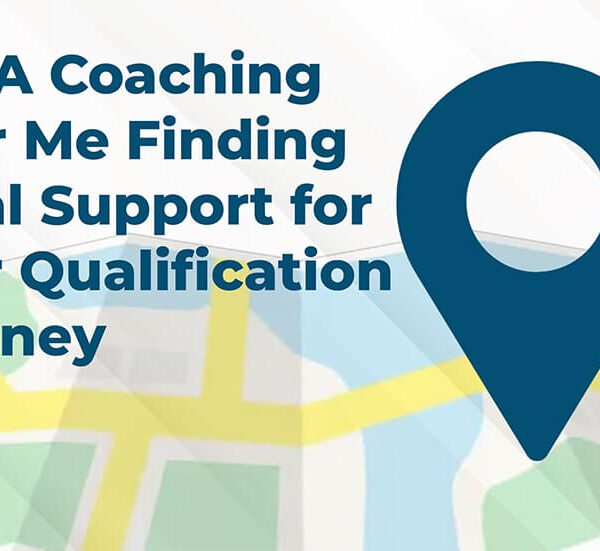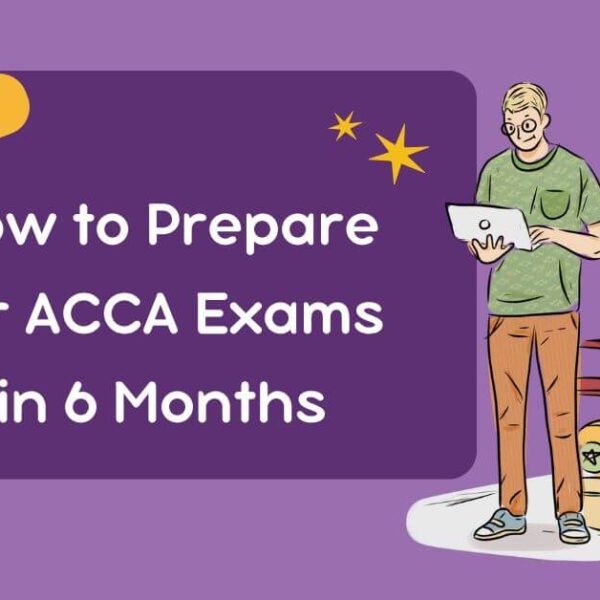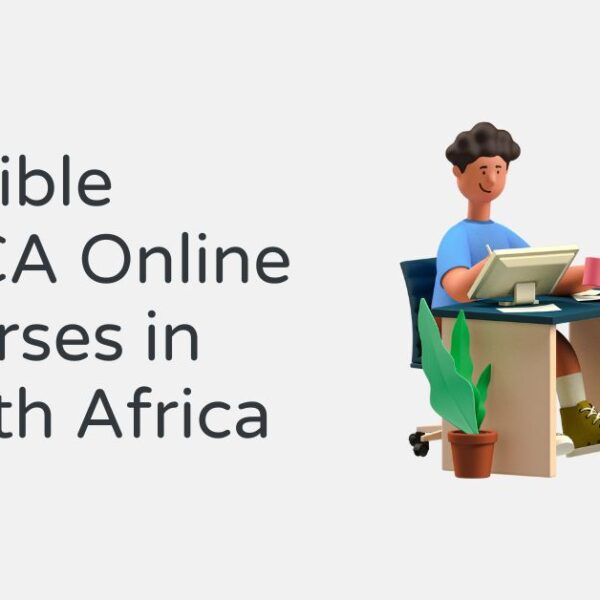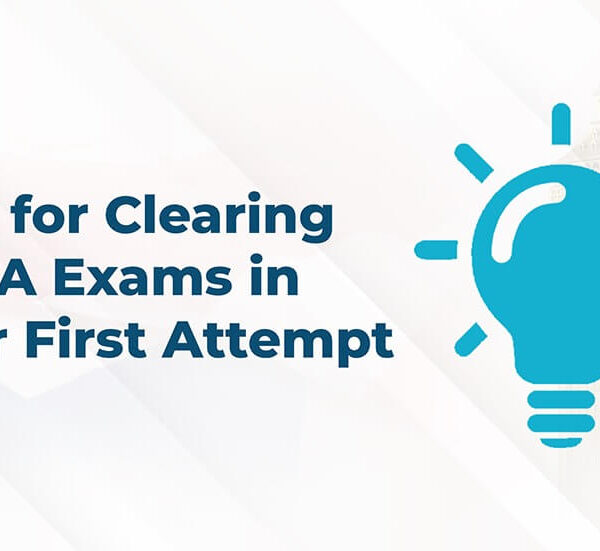Resilience Strategies for Students in Botswana
The ACCA qualification journey represents a significant challenge, with examination hurdles that many candidates struggle to overcome on their first attempt. For students in Botswana, where professional qualification often carries substantial personal and family expectations, examination disappointment can feel particularly devastating. Understanding how to respond constructively to setbacks forms an essential component of eventual success in this challenging professional pathway.
Understanding Examination Failure in Context
Before implementing recovery strategies, recognising the normalcy of ACCA examination challenges provides an important perspective:
Statistical Reality
ACCA global pass rates typically range between 35% and 45% for many papers, with certain examinations, such as Advanced Performance Management and Strategic Business Leader, historically showing even lower success rates. These statistics reveal an important truth: examination setbacks are a common experience rather than a sign of personal inadequacy.
For Botswana students, understanding this global context helps place individual disappointment within a broader perspective, recognising that even well-prepared candidates often require multiple attempts at challenging papers.
Cognitive and Emotional Responses
Typical reactions to examination disappointment include:
- Initial shock and disbelief when results don’t match expectations
- Self-doubt regarding the capability to complete the qualification
- Anxiety about the financial implications of additional attempts
- Concern about perception among colleagues and family
- Uncertainty about study approaches for subsequent attempts
These reactions, while natural, can impede effective recovery without conscious management and perspective.
Immediate Response Strategies
The days immediately following disappointing results require specific approaches:
Emotional Processing
Allow yourself appropriate time to acknowledge disappointment through:
- Expressing feelings to trusted supporters who understand the journey
- Recognising legitimate disappointment without catastrophising
- Physical activity to process stress hormones and improve perspective
- Brief disengagement before analysis to gain emotional distance
- Self-compassion practices acknowledge the challenge of the qualification
This emotional processing, while sometimes overlooked in professional contexts, creates the foundation for constructive analysis and planning.
Results Analysis and Information Gathering
Once emotionally ready, undertake a systematic examination analysis:
- Review detailed examination feedback, identifying specific weakness areas
- Consider whether issues relate to knowledge gaps, time management, or examination technique
- Compare your experience with others through student forums or study groups
- Consult tutors or mentors for an objective perspective on improvement areas
- Evaluate whether stress management or examination anxiety contributed to underperformance
For Botswana students, connecting with local ACCA study groups provides contextually relevant perspectives that complement official examination feedback.
Reframing the Experience
Shift your perspective through deliberate cognitive reframing:
- View the examination as valuable feedback rather than a final judgment
- Recognise the specific knowledge gained through the attempt
- Identify aspects that went well alongside improvement areas
- Consider how this experience contributes to professional resilience
- Remember successful professionals who overcame similar setbacks
This reframing transforms setbacks into opportunities for growth and development, thereby maintaining motivation for continued progress.
Strategic Planning for Next Attempts
Effective recovery requires structured approaches to subsequent examination attempts:
Study Approach Reassessment
Evaluate and potentially revise your learning strategy:
- Consider whether your study material sources need diversification
- Assess if your learning style matches your current study approach
- Evaluate time allocation across different syllabus areas
- Review the balance between conceptual understanding and question practice
- Consider whether group study might complement individual preparation
For many Botswana students, combining local tuition with international online resources provides complementary perspectives that enhance understanding.
Timeline and Scheduling Reconsideration
Develop realistic planning for your next attempt:
- Assess whether the previous study duration was sufficient
- Consider professional and personal commitments affecting study time
- Evaluate optimal examination scheduling considering other papers
- Build in buffer periods for unforeseen circumstances
- Create progressive milestones to monitor preparation adequacy
This deliberate planning prevents rushed preparation while maintaining momentum in the qualification process.
Examination Technique Enhancement
Address specific examination performance factors:
- Practice time management with strict examination conditions
- Develop better question interpretation skills through systematic practice
- Improve answer planning approaches for complex scenario questions
- Enhance handwriting legibility if relevant to your examination format
- Build familiarity with computer-based examination interfaces, if applicable
For Botswana students taking computer-based exams, regular practice with the ACCA CBE platform builds comfort with the digital examination environment.
Building Support Systems
Recovery benefits significantly from appropriate support networks:
Professional Guidance
Seek structured assistance through:
- Tutors who specialise in your challenging papers
- Mentors who have overcome similar examination setbacks
- Study coaches focusing on examination technique
- ACCA contact centre guidance on administrative considerations
- Tuition providers provide student support services
These professional resources offer targeted technical and strategic guidance, providing more than just general encouragement.
Peer Connections
Develop relationships with fellow students through:
- Study groups focused on specific challenging papers
- Online forums discussing examination experiences
- Local ACCA student gatherings in Botswana
- Virtual study partners for regular accountability
- Connections with recently successful candidates
These peer relationships combine practical study support with emotional understanding of the qualification journey.
Personal Support Network
Cultivate understanding among friends and family through:
- Clear communication about qualification challenges
- Education about typical ACCA progression patterns
- Specific explanations of how they can provide support
- Appropriate boundary-setting during intensive study periods
- Celebration of progress beyond just examination results
For Botswana students, where family expectations often place high value on professional achievement, this communication helps manage expectations while maintaining support.
Psychological Resilience Development
Long-term success requires developing mental toughness alongside technical knowledge:
Productive Self-Talk Patterns
Cultivate constructive internal dialogue through:
- Challenging perfectionist standards that undermine confidence
- Developing perspective-taking when facing challenges
- Distinguishing between temporary setbacks and permanent limitations
- Practising evidence-based self-assessment rather than catastrophising
- Maintaining focus on incremental progress rather than binary success/failure thinking
These cognitive approaches promote psychological flexibility, a crucial component of professional resilience.
Stress Management Techniques
Implement practical approaches to examination anxiety:
- Regular mindfulness practice during study periods
- Progressive muscle relaxation before study sessions
- Visualisation exercises, imagining successful examination experiences
- Breathing techniques for use during the examination of pressure points
- Adequate physical activity, balancing intensive mental exertion
These practices enhance cognitive function while reducing anxiety that can inhibit performance.
Professional Identity Development
Strengthen your professional self-concept through:
- Remembering examination results represents a knowledge assessment, not personal value
- Connecting with qualified professionals who have overcome similar challenges
- Recognising resilience as a core professional competency
- Viewing qualification as a developmental journey rather than validation
- Building identity components beyond examination success
This broader professional self-concept helps maintain motivation in the face of inevitable qualification challenges.
Conclusion
For ACCA students in Botswana, examination disappointment represents a common but manageable aspect of the qualification journey. By implementing structured recovery strategies combining emotional processing, analytical assessment, strategic planning, and psychological resilience, candidates transform setbacks into valuable learning experiences.
Remember that many of Botswana’s most successful finance professionals faced similar challenges during their qualification journeys. Your response to examination disappointment often develops precisely the resilience, adaptability, and persistence that will serve you throughout your subsequent professional career. With appropriate perspective and structured recovery approaches, examination setbacks become merely temporary delays rather than permanent roadblocks on your path to qualification.








